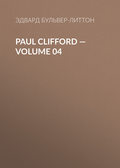
Эдвард Бульвер-Литтон
Falkland, Book 3
Mandeville had left E– that morning: he suspected nothing of Emily's attachment. This, on his part, was Bulwer, less confidence than indifference. He was one of those persons who have no existence separate from their own: his senses all turned inwards; they reproduced selfishness. Even the House of Commons was only an object of interest, because he imagined it a part of him, not he of it. He said, with the insect on the wheel, "Admire our rapidity." But did the defects of his character remove Lady Emily's guilt? No! and this, at times, was her bitterest conviction. Whoever turns to these pages for an apology for sin will be mistaken. They contain the burning records of its sufferings, its repentance, and its doom. If there be one crime in the history of woman worse than another, it is adultery. It is, in fact, the only crime to which, in ordinary life, she is exposed. Man has a thousand temptations to sin—woman has but one; if she cannot resist it, she has no claim upon our mercy. The heavens are just! Her own guilt is her punishment! Should these pages, at this moment, meet the eyes of one who has become the centre of a circle of disgrace—the contaminator of her house—the dishonour of her children,—no matter what the excuse for her crime—no matter what the exchange of her station—in the very arms of her lover, in the very cincture of the new ties which she has chosen —I call upon her to answer me if the fondest moments of rapture are free from humiliation, though they have forgotten remorse; and if the passion itself of her lover has not become no less the penalty than the recompense of her guilt? But at that hour of which I now write, there was neither in Emily's heart, nor in that of her seducer, any recollection of their sin. Those hearts were too full for thought—they had forgotten everything but each other. Their love was their creation: beyond all was night—chaos—nothing!
Lady Margaret approached them. "You will sing to us, Emily, to-night? it is so long since we have heard you!" It was in vain that Emily tried —her voice failed. She looked at Falkland, and could scarcely restrain her tears. She had not yet learned the latest art which sin teaches us-its concealment! "I will supply Lady Emily's place," said Falkland. His voice was calm, and his brow serene the world had left nothing for him to learn. "Will you play the air," he said to Mrs. St. John, "that you gave us some nights ago? I will furnish the words." Mrs. St. John's hand trembled as she obeyed.
SONG
1
Ah, let us love while yet we may,
Our summer is decaying;
And woe to hearts which, in their gray
December, go a-maying.
2
Ah, let us love, while of the fire
Time hath not yet bereft us
With years our warmer thoughts expire,
Till only ice is left us!
3
We'll fly the bleak world's bitter air
A brighter home shall win us;
And if our hearts grow weary there,
We'll find a world within us.
4
They preach that passion fades each hour,
That nought will pall like pleasure;
My bee, if Love's so frail a flower,
Oh, haste to hive its treasure.
5
Wait not the hour, when all the mind
Shall to the crowd be given;
For links, which to the million bind,
Shall from the one be riven.
6
But let us love while yet we may
Our summer is decaying;
And woe to hearts which, in their gray
December, go a-maying.
The next day Emily rose ill and feverish. In the absence of Falkland, her mind always awoke to the full sense of the guilt she had incurred. She had been brought up in the strictest, even the most fastidious, principles; and her nature was so pure, that merely to err appeared like a change in existence—like an entrance into some new and unknown world, from which she shrank back, in terror, to herself.
Judge, then, if she easily habituated her mind to its present degradation. She sat, that morning, pale and listless; her book lay unopened before her; her eyes were fixed upon the ground, heavy with suppressed tears. Mrs. St. John entered: no one else was in the room. She sat by her, and took her hand. Her countenance was scarcely less colourless than Emily's, but its expression was more calm and composed. "It is not too late, Emily," she said; "you have done much that you should repent—nothing to render repentance unavailing. Forgive me, if I speak to you on this subject. It is time—in a few days your fate will be decided. I have looked on, though hitherto I have been silent: I have witnessed that eye when it dwelt upon you; I have heard that voice when it spoke to your heart. None ever resisted their influence long: do you imagine that you are the first who have found the power? Pardon me, pardon me, I beseech you, my dearest friend, if I pain you. I have known you from your childhood, and I only wish to preserve you spotless to your old age."
Emily wept, without replying. Mrs. St. John continued to argue and expostulate. What is so wavering as passion? When, at last, Mrs. St. John ceased, and Emily shed upon her bosom the hot tears of her anguish and repentance, she imagined that her resolution was taken, and that she could almost have vowed an eternal separation from her lover; Falkland came that evening, and she loved him more madly than before.
Mrs. St. John was not in the saloon when Falkland entered. Lady Margaret was reading the well-known story of Lady T– and the Duchess of –, in which an agreement had been made and kept, that the one who died first should return once more to the survivor. As Lady Margaret spoke laughingly of the anecdote, Emily, who was watching Falkland's countenance, was struck with the dark and sudden shade which fell over it. He moved in silence towards the window where Emily was sitting. "Do you believe," she said, with a faint smile, "in the possibility of such an event?" "I believe—though I reject—nothing!" replied Falkland, "but I would give worlds for such a proof that death does not destroy." "Surely," said Emily, "you do not deny that evidence of our immortality which we gather from the Scriptures?—are they not all that a voice from the dead could be?" Falkland was silent for a few moments: he did not seem to hear the question; his eyes dwelt upon vacancy; and when he at last spoke, it was rather in commune with himself than in answer to her. "I have watched," said he, in a low internal tone, "over the tomb: I have called, in the agony of my heart, unto her—who slept beneath; I would have dissolved my very soul into a spell, could it have summoned before me for one, one moment the being who had once been the spirit of my life! I have been, as it were, entranced with the intensity of my own adjuration; I have gazed upon the empty air, and worked upon my mind to fill it with imaginings; I have called aloud unto the winds and tasked my soul to waken their silence to reply. All was a waste—a stillness—an infinity—without a wanderer or a voice! The dead answered me not, when I invoked them; and in the vigils of the still night I looked from the rank grass and the mouldering stones to the Eternal Heavens, as man looks from decay to immortality! Oh! that awful magnificence of repose—that living sleep—that breathing yet unrevealing divinity, spread over those still worlds! To them also I poured my thoughts—but in a whisper. I did not dare to breathe aloud the unhallowed anguish of my mind to the majesty of the unsympathising stars! In the vast order of creation—in the midst of the stupendous system of universal life, my doubt and inquiry were murmured forth—a voice crying in the wilderness and returning without an echo unanswered unto myself!"







